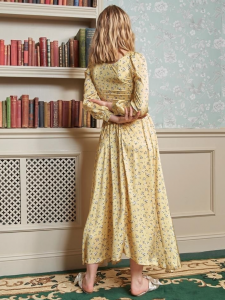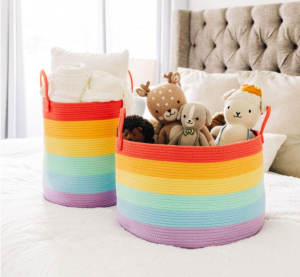Today I’m sharing a love story: a tale of generosity, kindness, creativity, collaboration, and craftsmanship.
It’s the story of social entrepreneurship done with heart and passion.
I’m always keeping an eye out for ethical brands, shops, and labels to share on this blog and on my podcast. It’s no accident that I came across the Instagram page of Love Stories Bali, a social enterprise and market that helps disadvantaged children attend local schools through the sale of sustainable clothing and accessories. The shop is infused with so much love, generosity, and creativity, it makes my heart sing.
I had the pleasure of speaking with Tess, its leading founder for our interview. Tess is originally from New York and, like me, she once worked on Wall Street and subsequently decided to leave the corporate world in order to give back and be of service.
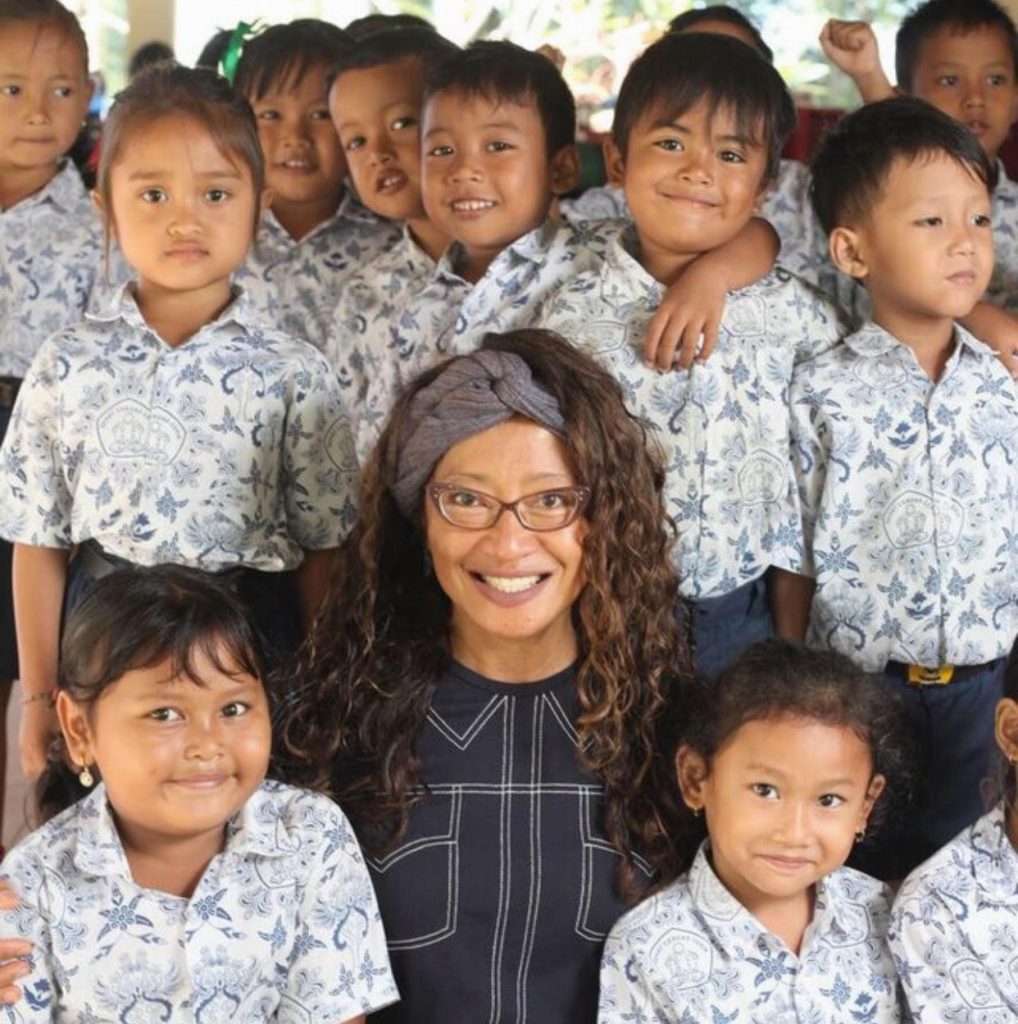
Tess if filled with light and undeniable passion, something you will pick up on when you listen to her speak.
What I love most about Love Stories Bali is that represents Fashion for Change. Its goal is to nourish children and Mother Earth. It’s about style, not fashion, something that truly speaks to me on many levels.
One of the criteria for selecting pieces for the shop? All materials must return safely to nature in a way that protects the oceans and the earth.
This follows the Balinese Tri Hita Karana spiritual philosophy. Tri means three, Hita means prosperity and Karana means the causes. It refers to all the elements that manifest happiness: harmony between God, humans, and their natural surroundings, something that Tess and her team are very passionate about.
The fact that the artisans who create pieces for Love Stories Bali re-use all fabric scraps, upcycle, use plant dyes and eco printing is remarkable. There is no waste here!
It’s ironic that their physical shop in Ubud is surrounded by fast fashion giants. My feeling is that they have something to learn from Love Stories Bali. Just take a look at how much the storefront shines!
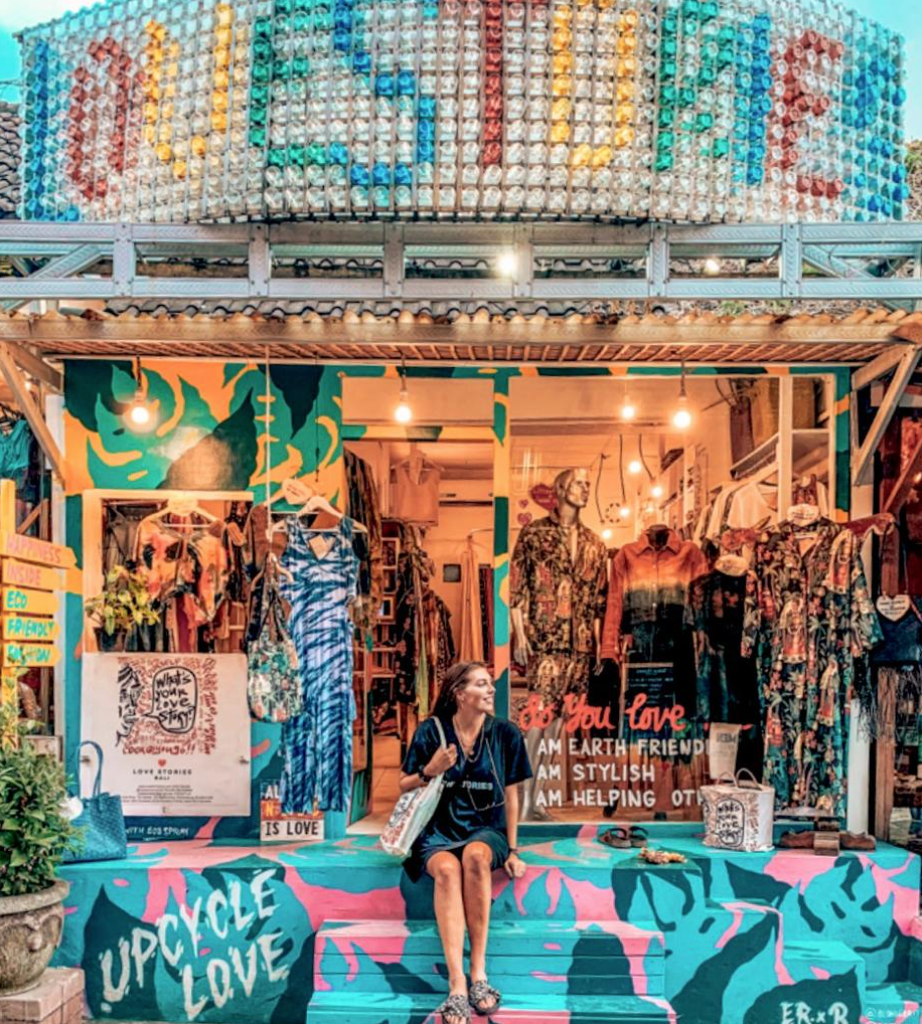
Although the physical shop located in the heart of Ubud is temporarily closed, you can shop online to support this amazing cause.
Here are some of my favorite finds. There are many, many more… You can read about all that deliciousness from the captions and the descriptions below!
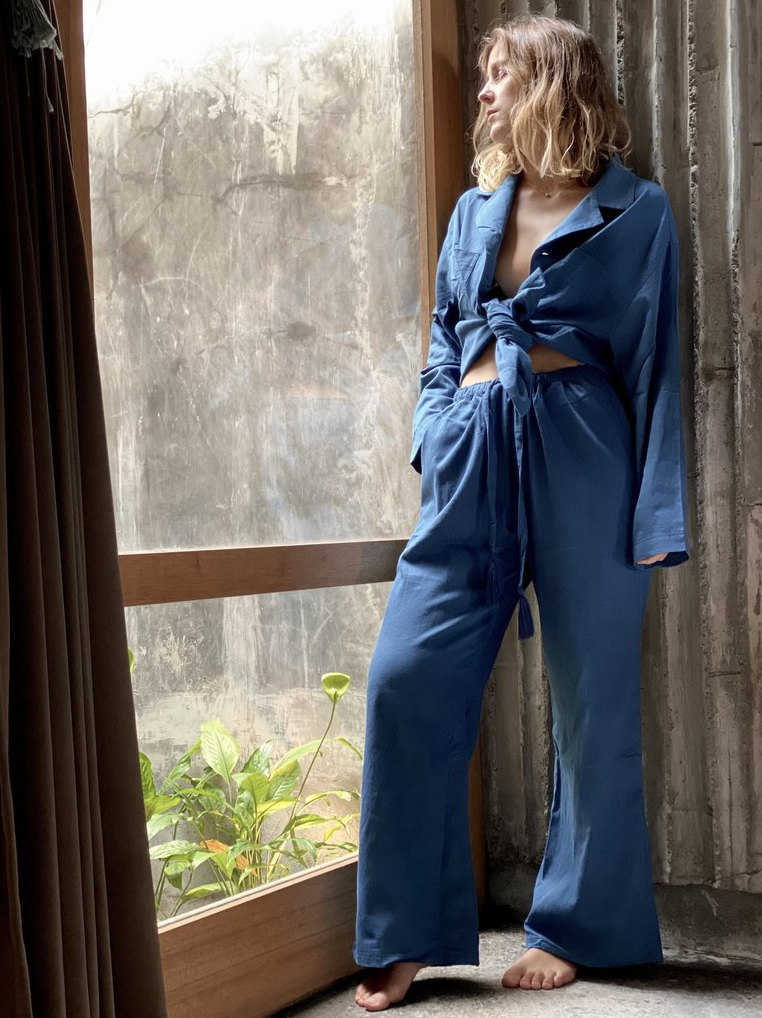
100% Organic Cotton: Breathable. Grown without harmful chemicals, leaving the soil, air and water free from contaminates that cause harm. Cool and and wrinkle-free.
100% Plant Dyed: Yellow extracted from mango leaf. Indigo extracted from strobilanthes cusia leaf.
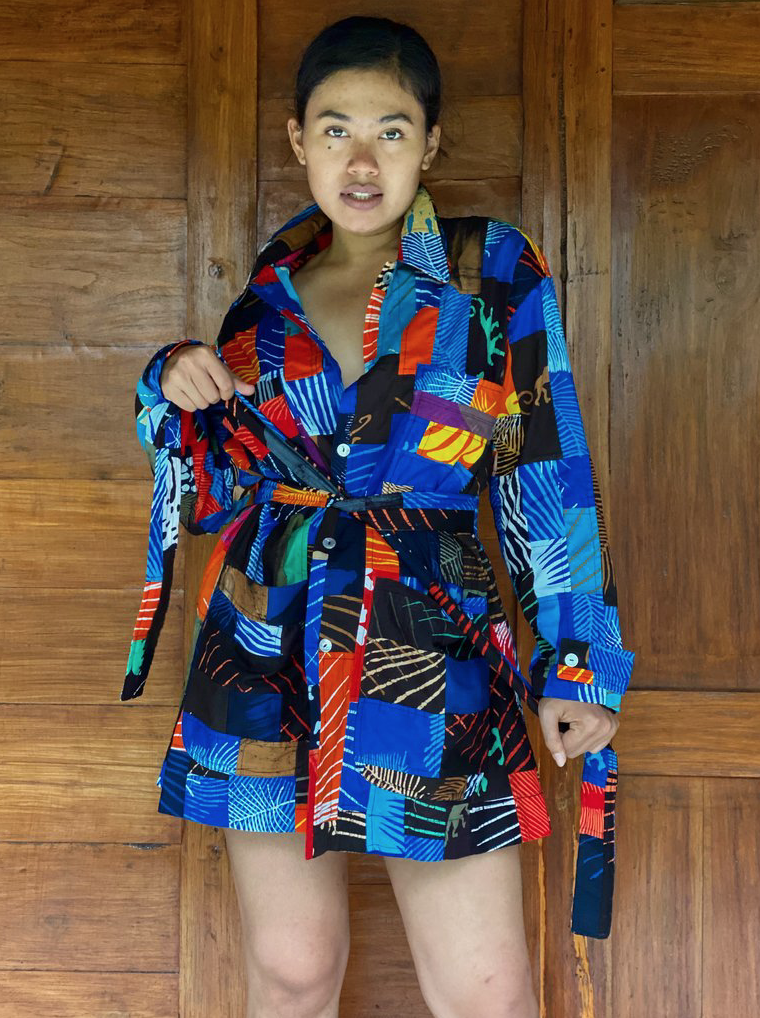
You’re investing in upcycling
A reborn piece, where we saved unwanted fabric scraps from landfill waste and turned them into upcycled reversible patchwork for this oversized midi shacket – vibrant, off-beat and supremely comfy. To do our bit for the environment, we work with Balinese mothers who are skilled patchworkers to give once-discarded items a second life while helping the mothers make a living. Upcycling presents the opportunity for disruption, inspiring us to find beauty in trash, and meaning in what was once old. Patchwork is intricate to make so we keep it one-of-a-kind pieces for those of us who are desperate to do things differently.
100% cotton poplin: printed via conventional printing
A Love Story of Giving
All Natali wants is for her fabric scraps to have a second purpose. In January 2020, we got a sweet surprise call from Natali who runs her family’s garment workshop in Bali. She was gifting us boxes of fabric scraps. Every year, Natali donates her workshop’s annual collection of scraps to one socially-conscious organization that can repurpose the scraps for a social cause.

We know your friends will be asking so get ready to tell the handcrafting story below.
100% silk 16 momme: Natural. Caressingly soft . Breathable . Keeps you cooler when the weather is warm and warmer when the weather is cool. Hypoallergenic
100% tie-dyed by hand using plant-dyes: Blue from strobilanthes cuisia leaf. Yellows from mango leaf. Blacks from ketapang leaf. Orange from sappan wood and mango leaves.
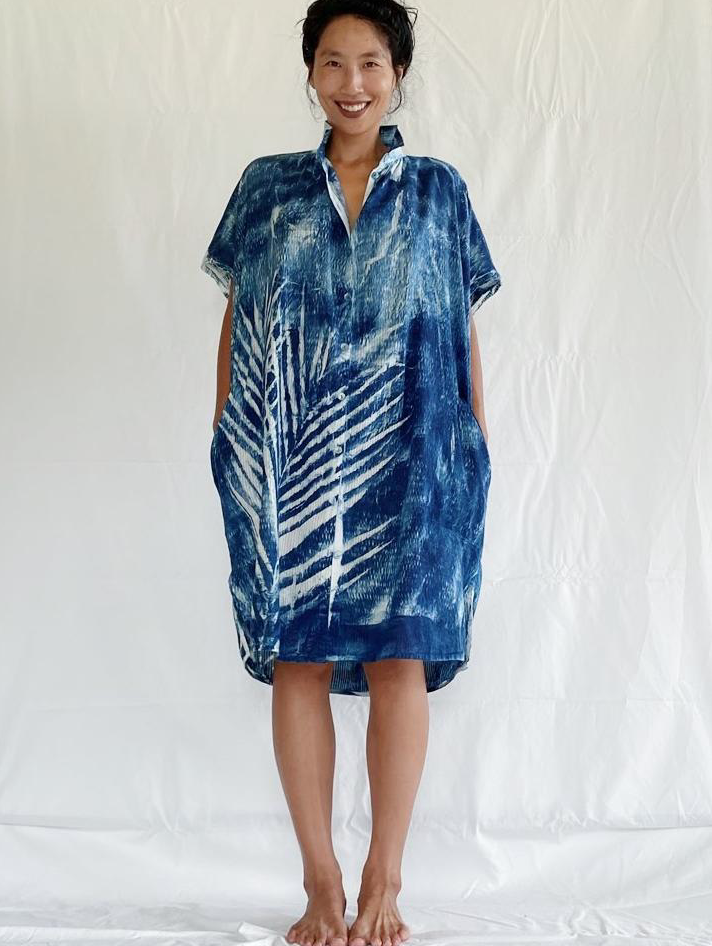
100% Organic Cotton: Breathable. Grown without harmful chemicals, leaving the soil, air and water free from contaminates that cause harm.
100% Plant Dyed: Blue from strobilanthes cusia leaf.
Palm-printing is one of our new experiments in marrying nature and design. It’s where we place fresh palm leaves on the fabric and brush over the plant dye to print their natural shapes on the fabric. Palm does not release color pigment so we simply enjoy its iconic pattern. Made even better with the use of healthy plant dyes. Plant dyeing is using natural dyes that are extracted from fresh plants and mixed by hand instead of synthetic chemicals made by machines. Good for the health: Safer than synthetic dyes as they don’t contain chemicals harmful to health. Good for the ecosystem: As plants can be regrown, they’re a renewable, low-cost source. Good for the heart: Bringing nature onto your clothes using living plants around us make us more present with the environment and appreciate what’s around us.
Design
Thank you so much Tess for this amazing conversation and all that you do.
You can listen to us here and here.



